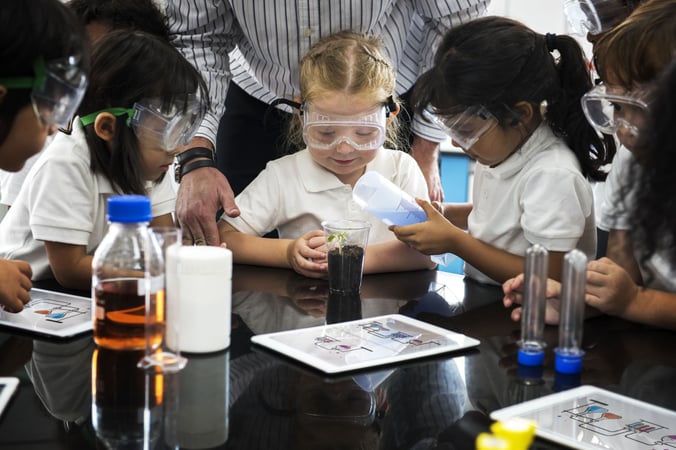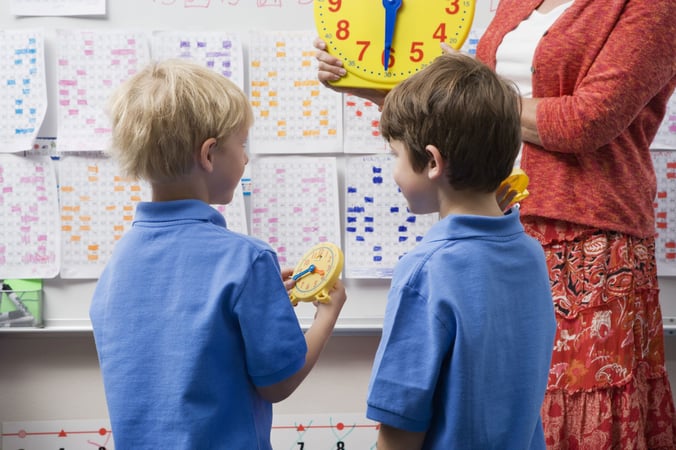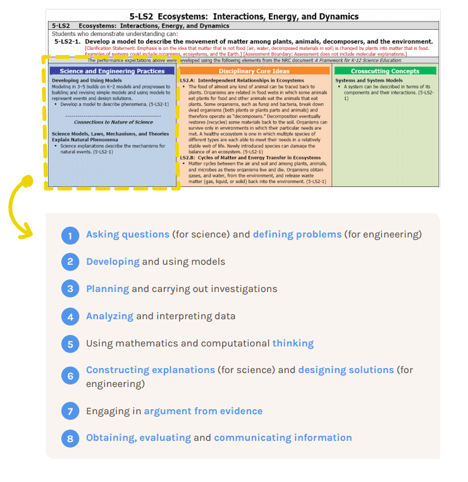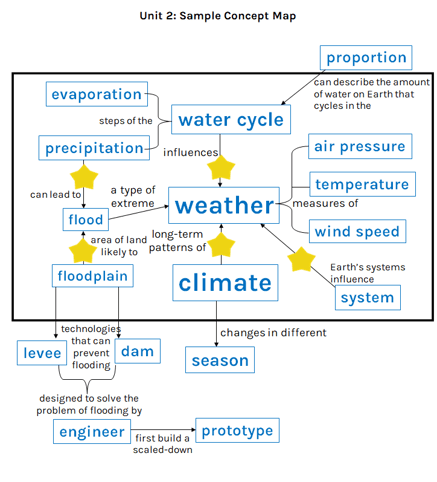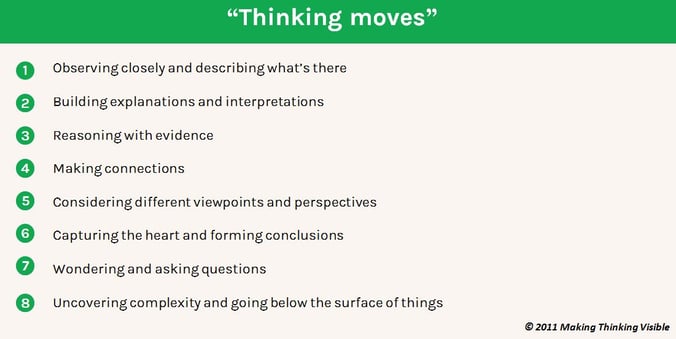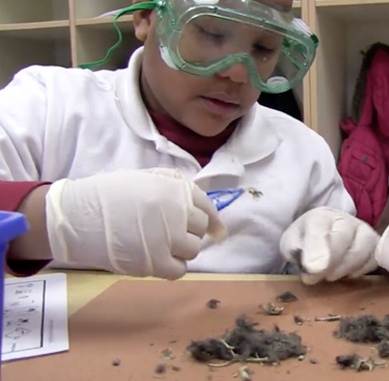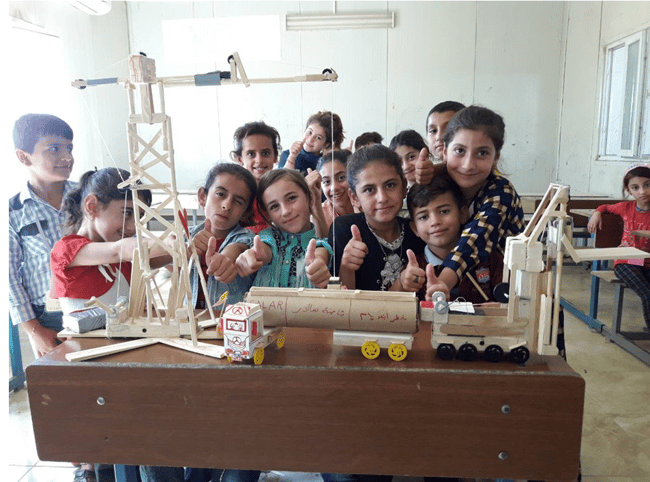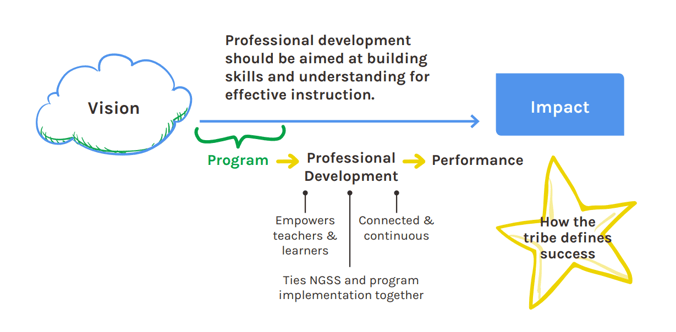Connecting students with phenomena-based science, technology, engineering, and math (STEM) learning opportunities is a driving force behind building the workforce of the future. For school leaders and teachers just starting to implement new hands-on learning models and those who have been incorporating collaborate STEM education for years, understanding the measurable effect on student learning and engagement levels is important. One Northeastern University researcher set out to evaluate the impact of implementing the collaborative, hands-on KnowAtom science curriculum in elementary and middle school classrooms.
Topics: Professional Development, Implementing New Science Standards, NGSS-Designed Curriculum, Case Studies, NGSS-Aligned Curriculum
How would you teach differently if you couldn’t give your students a test until a year later?
Ron Ritchhart posed this question in his book Making Thinking Visible. It’s also one of the favorite quotes of Judy Higgins, a veteran fifth-grade science teacher in Lawrence, Massachusetts.
When she first began teaching, she often wondered why her students would come in on Tuesday and not remember what they learned on Monday. This challenge led her to make changes to create a culture of thinking in her classroom. This culture shift helped her students make meaningful connections, prompting better learning—and retention. “I help my students become thinkers, become curious, and learn how to solve problems; I have seen them be able to do end-of-the-year tests with great confidence because they know how to think,” Higgins says.
How did she do it?
Continue readingAs many schools and districts move to remote or hybrid learning this school year, preserving what makes science learning most valuable for students, whether it's in the classroom or remote, is critical.
Continue readingTopics: Remote Learning
Dr. William Glasser, a renowned 1960s American psychiatrist, said, “We learn 10 percent of what we read, 20 percent of what we hear, 30 percent of what we see, 50 percent of what we see and hear, 70 percent of what we discuss, 80 percent of what we experience, and 95 percent of what we teach others.”
Continue readingTopics: Remote Learning
We’ve all heard the saying, “Necessity is the mother of invention.” In the spring of 2020, most of you had to live it. In a moment’s notice, teachers across the U.S. pivoted to a remote learning model with scarce notice.
Continue readingTopics: Remote Learning
As new science curricula appear in the market claiming to be designed for the Next Generation Science Standards, more and more teachers are starting to ask what their purpose is in a next generation classroom.
Continue readingTopics: Next Generation Science Standards, Next Generation Science, Implementing New Science Standards, NGSS-Designed Curriculum, Next Generation Science Classroom Instruction, STEM Education Policy, Three-Dimensional Learning
Now that the majority of states (40, to be specific, plus the District of Columbia) have adopted either the Next Generation Science Standards or very similar science standards, there is a growing focus on how to create assessments that are aligned to the new standards.
The Next Generation Science Standards were developed based on recommendations from the National Research Council’s A Framework for K-12 Science Education.
“Fully meeting the vision set forth by the Framework and Framework-aligned standards requires high-quality and aligned assessments that can provide actionable information to students, teachers, and families,” according to a recent report by the nonprofit Achieve.
Continue readingTopics: Next Generation Science Standards, Implementing New Science Standards, STEM Education Policy, Formative Assessment, Three-Dimensional Learning
Across the United States, there isn’t adequate guidance on how much time on learning schools need to dedicate to science instruction.
According to a new report by the nonprofit group Achieve, this needs to change, and the change needs to happen at the state level.
There are 40 states plus the District of Columbia that have now adopted the NGSS or similar next generation standards for science.
Time on Learning in a Next Gen Classroom
An inadequate amount of science time on learning is not news to many teachers who struggle to incorporate science into their already full days. In fact, not enough time on learning for science is one of the most common complaints facing schools implementing the Next Generation Science Standards.
Continue readingTopics: Next Generation Science Standards, Time on Learning, State-Specific Science Standards, STEM Education Policy, science education, engineering education
The Next Generation Science Standards call for a significant shift in instruction: students need to actually think, to develop and refine their own ideas and the ideas of their peers.
This leads to a basic question that is surprisingly hard to answer: how do we think? When we ask students to think, what should really be going on in their minds?
The book “Making Thinking Visible” tackles these questions head-on, exploring how and why thinking is so important in the classroom.
As part of their research, the authors came up with eight thinking moves, what they call “high-leverage moves that serve understanding well.” These eight thinking moves are “integral to understanding and without which it would be difficult to say we had developed understanding.”
Continue readingTopics: Next Generation Science Classroom Instruction, Phenomena-Based Learning, science education, engineering education, Three-Dimensional Learning
This blog is the second part of a two-part series titled "Asking Better Questions: The Key to Deeper, More Engaged, More Authentic Instruction." To read the first part, click here.
"Children grow into the intellectual life of those around them. School is no longer about the quick right answer, but about the ongoing mental work of understanding new ideas and information." (Vygotsky 1978)
Given this, the questions that we ask shouldn't be about quick right answers. Instead, they should be about getting students to engage in the mental work—the cognitive load—of understanding new ideas and information, which can come from the individual or other students.
What are some techniques and some practical approaches that you can use?
- Start by identifying key big ideas, or concepts, for yourself that are a part of the unit.
Topics: Next Generation Science Classroom Instruction, Phenomena-Based Learning, science education, engineering education, Three-Dimensional Learning
How do the questions we ask students influence the quality of classroom instruction—and by extension, the depth of students’ learning?
This question is critical for classrooms implementing the Next Generation Science Standards and adaptations of the NGSS. Creating a next generation learning environment requires space for creativity, analysis, and decision-making so that students can develop the control and agency necessary to develop and use the three dimensions of the NGSS—science and engineering practices, disciplinary core ideas, and crosscutting concepts.
For students to develop control and agency, they need opportunities to be creative, to independently and collaboratively use the eight science and engineering practices and crosscutting concepts to make sense of the disciplinary core ideas, and then have the opportunity to own the result of their efforts, regardless of the outcome.
Continue readingTopics: Next Generation Science Standards, Next Generation Science Classroom Instruction, Phenomena-Based Learning, Three-Dimensional Learning
Not too long ago a reader of this blog posed the following question:
My question is how do you get kids to want to even ask questions? I teach high school and the only way most of my students learn anything is by my forcing it down their throats, because they aren't even curious about phenomena. This new model is awesome for kids who WANT to learn, but for the vast majority, school is where their parents want them to go so they aren't home all day. Any thoughts?
It got me thinking because it strikes at the very heart of teaching and learning: What is the value-add of time on learning today?
Continue readingTopics: Next Generation Science Standards, Time on Learning, Next Generation Science Classroom Instruction, Phenomena-Based Learning, Three-Dimensional Learning
When Mahma was a child, he dreamed of being a teacher.
However, poverty made that dream out of reach to Mahma as he grew up. Instead, he became a farmer in Sinjar, a town in northern Iraq.
Then in 2014, the Islamic State in Iraq and Syria (ISIS) attacked Sinjar and surrounding villages in what has been internationally recognized as the 74th attempted genocide of the Yazidi people. Tens of thousands of Yazidis, including Mahma, fled to escape ISIS.
Now, almost five years later, hundreds of Yazidi adults and thousands of Yazidi children have found hope in an unexpected place—inside the camps for internally displaced people (IDP) in the Kurdish Region of Iraq (KRI) where they’ve ended up.
This hope has come from an innovative STEM (science, technology, engineering, and math) program for K-8 students that has taken root in the U.N. camps and surrounding schools. The STEM program, launched in 2015, is aimed at bringing relevant and lifelong skills to children living in the camps while at the same time helping them build skills to cope with conflict.
Continue readingTopics: Next Generation Science Standards, Innovation, Inquiry Based Learning, STEM Education Policy, science education, engineering education, KRI
In our third post exploring how to develop a culture of success with the Next Generation Science Standards, we turn our attention to the role of professional development .
It is essential to have a professional development plan that positively shapes culture. This is because if you’re going to do something new, then you need to understand what’s involved in that new thing. This is true for any task, including implementing the Next Generation Science Standards.
Teachers teach the students. But who teaches the teachers and the administrators? That’s key because
if you buy a program that you don’t understand, or somebody buys a program for you that you don’t understand, then how can you implement the program as it’s designed to be used?
Continue readingTopics: Next Generation Science Standards, Professional Development, Implementing New Science Standards, Next Generation Leadership, Three-Dimensional Learning
Last week we talked about why focusing on a building or district's culture is so important for a successful implementation of the Next Generation Science Standards.
This week we turn our attention to the important role that instructional leadership plays in culture, which in turn affects how successful any implementation will likely be.
Continue readingTopics: Next Generation Leadership, Next Generation Science Classroom Instruction, STEM Education Policy, Three-Dimensional Learning








